In our lab, we have realized the first quantum coherent communication protocol operated between superconducting quantum circuits located in two cryogenic systems separated by a distance of 5 meters.

New National Centre of Competence in Research (NCCR) "SPIN"
The Swiss Federal Councilor Parmelin announced the launching of 6 new National Centres of Competence in Research (NCCR), including the NCCR "Spin" in which our group is involved.
Under the leadership of Prof. Richard Warburton, University of Basel, the NCCR "SPIN" aims to make a major contribution to the development of quantum computers and create the basis for a new information-processing technology. The objective is to develop small, fast, scalable silicon-based qubits. It will also generate important findings on software and algorithm development, error correction and the architecture of future quantum computers.
The Swiss National Science Foundation (SNSF) supports the NCCR "SPIN" with CHF 17 million in the first funding phase from 2020 to 2023.
ETH Centre Quantum Science and Technology
In the second round of ETH+ the Executive Board decided to financially support the initiative ETH Centre for Quantum Science and Technology. The planned Centre will pool the quantum research activities across the engineering and natural sciences at ETH as well as the Paul Scherrer Institute PSI to strengthen this field at the national level. There are also plans to establish a joint professorship with PSI for experimental quantum technology as well as a professorship for quantum information at the Department of Computer Science.
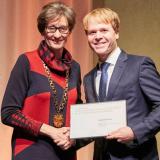
Sebastian Krinner wins the Lopez-Loreta Prize 2018
Congragulations to Sebastian Krinner for receiving the Lopez-Loreta Prize 2018, and with it a five-year research grant worth 1 million Euros.
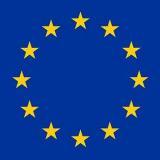
New FET Flagship Project OpenSuperQ
Ten international partners from academia and industry - including the Quantum Device Lab - will collaborate in a unique research endeavour to build a hybrid high-performance quantum computer. The new EU project OpenSuperQ (An Open Superconducting Quantum Computer), under the coordination of Saarland University, is part of the large-scale FET Flagship Initiative on Quantum Technologies. This unprecedented €1 billion initiative is funded by the European Commission and brings together experienced partners from across the EU.
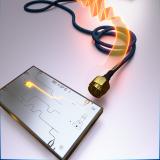
Deterministic quantum state transfer and remote entanglement using microwave photons
Sharing information over computer networks for private, business or science-related communication is part of our everyday lives. In the future, we may use protocols based on quantum physics to realize secure communication or to perform distributed quantum information processing exceeding the capabilities of classical computers and communication networks. In our work, we take a key step toward a future quantum network by realizing a fully deterministic quantum communication protocol between two remote superconducting quantum circuits. We accomplish this protocol by emitting a single, time-symmetric, itinerant microwave photon from one node of the network and absorb at another one to transmit a quantum bit of information and establish entanglement between two distant quantum nodes on-demand.
Nature 558, 264-267 (2018)
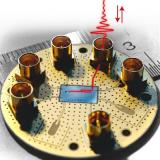
Single-Shot Quantum Non-Demolition Detection of Individual Itinerant Microwave Photons
Information is often transmitted using electromagnetic radiation, the quantum units of which are photons. In the microwave regime, detecting single itinerant photons at the receiving end of a transmission channel is challenging since microwave photons possess 5 orders of magnitude less energy than their optical counterparts.
In this work, we show how to transfer the information content of a propagating photon into an excitation of a stationary qubit. By reading out the state of the latter, we acquire knowledge about the photon’s presence without destroying it. This ‘non-demolition’ aspect opens up new possibilities of detecting the photon in flight while allowing it to travel on towards another destination. Such schemes are potentially useful for realizing logic gates between propagating photons and for creating quantum networks.
Phys. Rev. X 8, 021003 (2018)
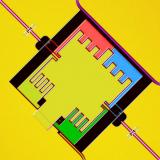
Studying light-harvesting models with superconducting circuits
Anton Potočnik together with his colleagues from the Quantum Device Lab and collaborators from the University of Cambridge and Princeton University shows how superconducting quantum circuits can be used to obtain insights into light-harvesting models.
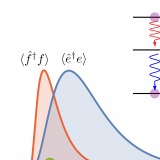
Correlations and entanglement of microwave photons emitted in a cascade decay
In the '70s, atomic cascades were used as the first sources of polarization-entangled photon pairs, making it possible to test nonlocal aspects of quantum mechanics for the first time. In our experiment, we have provided a new perspective on cascade decay by engineering a setting that is hardly reachable in the realm of atomic physics, namely, one in which a single emitter is coherently excited and decays into individual, well-defined, continuously monitored field modes. Our emitter is an artificial atom with transition frequencies in the microwave domain, stongly coupled to a one-dimensional waveguide. The emitter is prepared in a coherent superposition of the ground and second-excited state; when it decays, the coherence of its state is mapped onto two itinerant photonic modes, which we characterize using nearly-quantum-limited linear amplifiers. The ability to generate entanglement between spatially separated, itinerant radiation fields, as demonstrated in our experiment, is essential to quantum information distribution protocols.
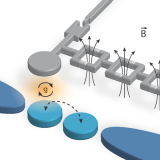
Strong Coupling Cavity QED with Gate-Defined Double Quantum Dots Enabled by a High Impedance Resonator
The efficient transfer of energy across different quantum systems - an essential ingredient to quantum-information-processing protocols - requires that the coupling between these systems is stronger than the decay rate of either one. Here we report experiments in which we have reached this so-called strong-coupling regime in a hybrid system consisting of a gate-defined double quantum dot and a superconducting resonator. These results underline the potential of circuit-QED experiments with semiconductor nano-structures both for quantum information processing and for fundamental studies of light–matter interactions.



